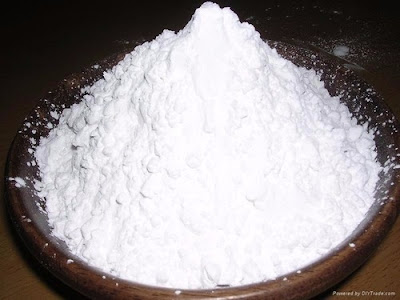Lead Carbonate: Formula, Properties and Applications
Lead carbonate is a well-known inorganic compound that has been largely used across industries for centuries. But its use has become regulated due to wellness concerns. However, it still holds vital importance in various industrial techniques. In this column, we will survey the lead carbonate formula, its physical and chemical elements, and various lead carbonate uses in modern industries.
What is Lead Carbonate?
Lead carbonate is an inorganic compound developed up of lead, carbon, and oxygen. It certainly occurs in minerals such as cerussite, and it's been used traditionally as a white pigment and in numerous production systems. The most natural form of lead carbonate used industrially is comfortable lead carbonate, further than known as white lead.
Lead Carbonate Formula
The lead carbonate formula is PbCO₃. It represents a salt accepted from carbonic acid and lead. There is over and above that a bright form of this compound known as ordinary lead carbonate, with the chemical formula 2PbCO₃·Pb(OH)₂. This form is expressly commonly referred to as white lead and has been used all-encompassing in the paint industry in the past.
Physical and Chemical Traits of Lead Carbonate;
Realization the traits of lead carbonate is great for safely handling and applying this compound in different industrial procedures. Below are some of the most key physical and chemical components of lead carbonate:
Image: White crystalline powder or colorless crystals
Solubility: Insoluble in water despite that soluble in dilute acids
Density: Approximately 6.6 grams per cubic centimeter
Molar Mass: 267.2 grams per mole for PbCO₃
Stability: Stable under usual temperatures and pressures uniform so can decompose when heated, releasing toxic fumes of lead and carbon oxides
Toxicity: Mostly toxic and hazardous to soundness if ingested or inhaled
Due to its toxicity, lead carbonate should be managed with care. Strict personal protective equipment (PPE) is primary for complete personnel working with this substance.
Lead Carbonate Uses in Modern Industry
Despite the well-known body risks related with lead disclosure, lead carbonate uses remain contextual in make a choice industries. The compound offers unique specifications that are supportive in special applications. Some of the most easy uses join:
1. Ceramic and Glass Manufacturing:
Lead carbonate is used in the production of specialty glasses and ceramics. It helps improve the optical originality and gracefulness of the final products. It as well lowers the melting point of the glass, elevating the production procedure more quickly.
2. Paint and Pigments (Historical Use):
Normal lead carbonate, or white lead, was once a generally used pigment in paints due to its bright white color and fantastic opacity. On the new hand this use has declined dramatically due to toxicity concerns, though it is occasionally used in niche applications or restoration works.
3. Plastic Stabilizer:
In the plastic enterprise, lead carbonate is used as a warmth stabilizer for polyvinyl chloride (PVC). It prevents the degradation of plastic ingredients under warm and mild conditions, thereby widening the lifespan and exceptional of the plastic products.
4. Lead-Confirmed Batteries:
Some variations of lead carbonate are employed in the manufacture of components for lead acid batteries. While it is not the important tireless material in the battery, it is used in the preparation path of connected ingredients like lead oxide.
5. Rubber and Cable Industry:
In rubber manufacturing, lead carbonate is used as a pigment and processing lend a hand. It imparts whiteness and flexibility to rubber products. It as well finds applications in the cable industry as an insulation material.
6. Laboratory Reagent:
Lead carbonate serves as a laboratory reagent in inspection-directed and industrial investigation. It is used for synthesizing second lead compounds and for various appraising procedures.
Safety and Planetary Concerns:
The use of lead carbonate is notably adjusted due to its proficiency and well-being hazards. Visibility to this compound can cause serious stamina issues, including neurological damage, kidney dysfunction, and reproductive problems. For this reason, industries using lead carbonate must hold to strict safety protocols and earth-cordial regulations.
Amizara Speciality Chemicals LLP is a responsible supplier that ensures high standards of quality, packaging, and safety in the distribution of lead carbonate.
Packaging and Handling:
Lead carbonate is typically packaged in moisture-proof containers to interruption contamination and visibility. Users must store it in a cool, dry, and well-ventilated area. Safety data sheets and usage instructions should continuously be reviewed previously handling the material.
Why Organize a choice Amizara Speciality Chemicals LLP?
When it comes to sourcing chemicals like lead carbonate, quality and simplicity matter. Amizara Speciality Chemicals LLP has created a reputation for delivering high-degree industrial chemicals with an unwavering inflection on safety, quality, and customer satisfaction. They offer:
Unchanging product quality
Timely delivery schedules
Concentrated pricing
Dedicated customer reserve
By choosing a reputable supplier you guarantee that your lead carbonate rules are met with the highest standards of quality and safety. From offering wide-ranging product specifications to delivering reliable customer copy.



Comments
Post a Comment